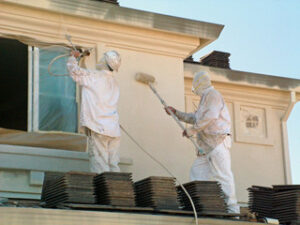Unlike most trucks, the military Humvee rides much higher than it does wide. But that high-up vantage point allows some cool variants to be built on top of the standard weapons carrier HMMWV.
The Humvee fulfills several military needs that more typical APCs can’t fill, including hauling cargo and front-line reconnaissance patrols. It’s also the right size to fit inside a C-130 Hercules. Click here to Learn More.

- Armor
The Humvee has become the quintessential symbol of modern military conflict. It has conquered sand, snow, and rocks. It has pulled trailers down highways and dangled off the back of CH-53 helicopters. It has even jumped entire continents in transport aircraft. It is a true 4×4 warrior that has fought in two wars and inspired many civilian adaptations.
The HMMWV, or High Mobility Multipurpose Wheeled Vehicle, was designed as a light combat vehicle for troop and cargo transport behind the front lines. It was never intended as a front-line fighting vehicle, but it did well in that role, and its chassis survivability has helped to keep losses low. It has no protection from chemical, biological, or radiological weapons, however, and it was never designed for sustained firefights in urban engagements.
Its weakest point is its armor, which is less thick than those on heavier armored personnel carriers or main battle tanks. The Humvee is vulnerable to small arms fire, grenades, mines, and RPGs. It can also be targeted with direct and indirect fire, including sniper and AA missions.
There are several different armoring kits for the Humvee that can increase its defenses. Some are as simple as lining the floor with sandbags, while others add steel plates and weld scrap metal to the sides. The most advanced armored Humvees are developed by companies like ArmorWorks and Battelle, which have contracts with the military to make them more protective.
The Humvee is undergoing a gradual replacement with the MRAP and the Joint Light Tactical Vehicle, both of which offer more protection and are better suited for the kinds of urban engagements where most of the Humvee’s fatalities have occurred. But the Humvee remains a viable platform for many roles, including ambulances, missile platforms, detection units and light cargo haulers. In fact, the United States military is currently experimenting with adding a cargo loader to the Humvee for greater utility. This will allow the vehicle to carry much more weight without sacrificing its off-road capabilities or agility.
- Fuel Economy
The HMMWV, more commonly known as the Humvee, is a military vehicle. It’s a big, heavy truck that was designed to do serious work in difficult terrain and extreme conditions. But like any truck, the Humvee needs fuel to run. It’s a huge vehicle that consumes more gas than your average car. Fortunately, engineers are working on ways to improve the vehicle’s fuel economy so it uses less gas and oil.
The Army’s new Joint Light Tactical Vehicle (JLTV) is set to replace the aging Humvee fleet and it will be more fuel efficient than its predecessor. The JLTV will also be able to withstand insurgency attacks and other threats that were previously outside the realm of the HMMWV’s capabilities.
But the Humvee is still being used for certain missions, especially in the Middle East. It will likely be in use until 2050. In the meantime, it’s not uncommon to see civilians buying Humvees for use off road or as armored taxis for security companies. But if you want to buy a Humvee, it’s important to understand the difference between the military version and the civilian version. The military version is more affordable and offers serious power, but it’s not designed for comfort or luxury.
Civilians who buy military surplus vehicles, such as an HMMWV, should know that they will need to get the vehicle up to speed before it can be driven on public roads. This includes getting it up to DOT standards, which means ensuring the Humvee meets safety requirements, such as having headlights and tail lights, as well as meeting exhaust and inspection regulations.
Civilian buyers will also need to make sure the Humvee they purchase meets their state’s titling and registration requirements. Typically, these vehicles are sold on consignment from previous owners, meaning the previous owner has already received the necessary paperwork for it to be street-legal. It’s also worth mentioning that most military HMMWVs are not equipped with air conditioning or stereo systems. This is to save on weight so that they can be air-dropped into combat zones by C-17s.
- Reliability
HMMWVs, or Humvees as they are commonly known, are the workhorses of the military. They are built for the harshest of conditions and can be adapted to fit the needs of any mission. While these vehicles may look big and intimidating, they are very easy to operate and have a very low loss rate compared to other military vehicles.
In addition, a Humvee is easy to maintain and has a high standard of reliability, availability, maintainability and survivability. The Humvee is also very cost-effective. The vehicle was designed with a modular layout and is made up of 15 different configurations such as cargo/troop carriers, weapons carriers, ambulances and shelter carriers. This allows the military to have one set of common parts for all 15 of these configurations which reduces maintenance costs and training time.
The Humvee has been so successful that it has essentially replaced the military’s previous fleet of vehicles such as jeeps and Land Rovers. During the initial push into Iraq in 1991 and 2003, Humvees steamrolled over the country’s defenses with ease and proved that nothing could stop this powerful machine. However, when the mission shifted to urban areas, the Humvee was no longer in its element. Roadside bombs and rocket-propelled grenades turned the aluminum armor into tissue paper.
Although the Humvee has been replaced by the JLTV (Joint Light Tactical Vehicle), it is still the vehicle of choice for many US military units. These vehicles are still being produced by AM General and will likely be in service until 2050 or later.
If you are looking to purchase a Humvee for yourself, it is important to understand that these vehicles are not street-legal in every state. To make a Humvee road legal, it will need to undergo inspection and get a state title from your local DMV or State titling agency.
While purchasing a military Humvee is not as simple as strolling onto the used car lot and dropping a wad of cash, it is possible with some research. To ensure you are getting a reliable and affordable vehicle that will stand up to the toughest of conditions, it is important to choose a quality supplier such as Armormax. Our team of experts can help you find the perfect Humvee for your specific needs and will install the top-of-the-line armoring to protect you and your crew when the time comes.
- Comfort
HMMWVs aren’t known for their comfort, especially in hot climates. However, if you get the right upgrades you can make your Humvee more comfortable to ride in. For example, you can install seat upgrades to provide better cushioning and support. You can also add air conditioning to help keep you cool on hot days.
In the future, the military might replace its Humvee fleet with state-of-the-art vehicles like the JLTV. While the new vehicle might be intimidating to look at, it will also offer a lot of creature comforts that the Humvee couldn’t.
One of the best parts about the Humvee is its versatility. It can be used for everything from cargo transport to medical aid. The vehicle can also be modified to include extra armor protection or even a gun station. It is also a great choice for off-road driving.
The original Humvee was built by AM General. The company submitted a technical proposal to the government in February 1981, with drawings of its proposed High Mobility Multipurpose Wheeled Vehicle (HMMWV). The drawing included a grille design that featured nine vertical pill-capsule-shaped slots that were slightly taller than the round headlights that bookended the slots. AM General’s design was ultimately selected for production.
Over the years, the HMMWV has become known as “Humvee” to the public. This has been partly due to the enthusiasm of Hollywood tough guy Arnold Schwarzenegger, who became a big fan of the vehicle after seeing it during filming for Kindergarten Cop in Oregon. The action movie star contacted AM General to express his appreciation, and the vehicle soon gained a following among military personnel.
Although the Humvee is being replaced by the JLTV, it is still a useful vehicle for many front-line missions. The JLTV is a larger version of the HMMWV, and it offers more comfort than its predecessor. However, it may not be able to withstand the same level of front-line combat that the Humvee has been able to.
For many soldiers, the transition from the HMMWV to the JLTV will be difficult. The HMMWV has a reputation for being rugged and dependable, but it isn’t exactly a comfortable vehicle. Soldiers in the 1st ABCT have already begun training with their JLTVs, and some are expressing concerns about the comfort of the vehicle.





